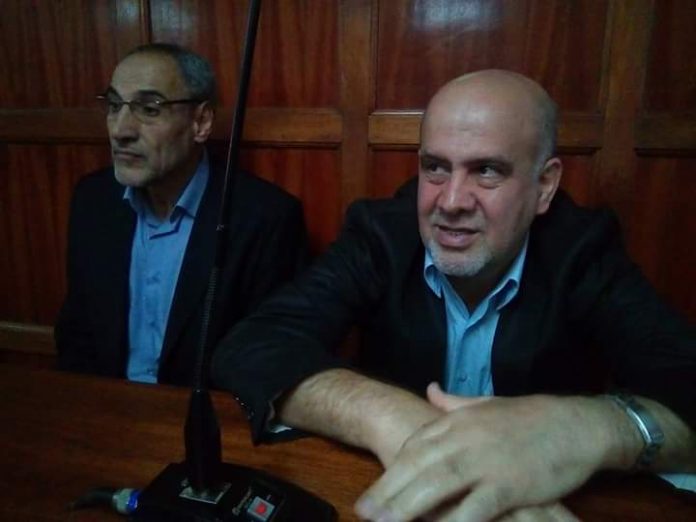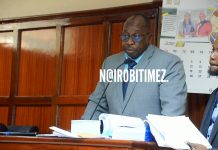
BY SAM ALFAN.
Two Iranians acquitted of terrorism charges wants Inspector General of Police Joseph Boinnet jailed by Supreme Court.
Ahmad Abolfathi Mohammed and Sayed Mansour Mousavi through their lawyer Ahmednasir Abdullahi, claim that they are being held in the country illegally following a court ruling dated February 23, 2017.
“In view of the fact that the respondents have been acquitted of all criminal charges that were preferred against them by an Order of a Court of competent jurisdiction (the Court of Appeal in Criminal Appeal No. 135 of 2016) and further taking into account the fact that the determination of the present motion is dependent on the continued presence of the respondents within the jurisdiction of Kenya, we hereby direct that arrangements be made by the Applicant to ensure the continued presence of the respondents within the jurisdiction of Kenya without infringing on their liberties as guaranteed by the Constitution.” the 2017 ruling read.
However Ahmdenaisr says that despite the said order being made, the two Iranians are being held in police custody at the Anti-Terrorism Police Unit situated in Nairobi Area, Upper Hill in complete disregard of an Order issued by this Court.
“The actions on the part of the State amounts to a blatant contempt of court and seriously imperil the efficacy and integrity of the order issued by this Court”, Ahmednasir says.
The failure on the part of the State to comply with this Court’s Order constitutes not only an abuse of public office but the action offends the dignity and authority of Court.
The application filed under urgency, the two Iranians are seeking the Court to cite Joseph Boinnet, Inspector General of Police for contempt of the Court’s Order issued on February 23, 2018 and further order them to be committed to civil jail for a term not exceeding six months.
“Pending the hearing and determination of this Application inter-parte the court be pleased to issue a stay on the hearing of the Applicant’s Notice of Motion dated 19th February 2018”, the affidavits read
The Iranians were initially jailed for 15 years after being convicted of concealing 15kg of RDX explosives they allegedly planned to use to bomb the Israeli Embassy in Nairobi six years ago.
The Supreme Court judges led by Chief Justice David Maraga had ordered that the two be held in custody in a manner that is in accordance with the law without violation of their rights pending an application by the Director of Public Prosecutions (DPP) seeking to quash their release.
Ahmad and Sayed filed the contempt-of-court proceedings against Boinnet alleging that they were held in a police cell in a deplorable condition in contempt of their rights enshrined in the Constitution.
Supreme court Justice J.B Ojwang directed that Ahamad Abolfathi Mohammed, and Sayed Mansour Mousavi remain within the jurisdiction of the supreme court.
“The applicant will be contesting the release by the appellate court, of the two who were facing charges bearing claims of serious threat to the security of citizens –notable the charge under the Explosives Act,” rule justice Ojwang.
The court further certified the matter as urgent.
The DPP in its appeal say that it is dissatisfied with the judgment issued by the court of appeal adding that it erred in law by quashing the sentence and setting the two free.
The Two Iranians were jailed for 15 years in 2013 over terror-related charges The High Court found Ahamad Abolfathi Mohammed, and Sayed Mansour Mousavi, guilty of concealing 15 kilograms of bomb-making material in the country.
But moved to the court of appeal through their lawyer Ahmednassir Abdullahi where they secured their freedom after the Court of Appeal ruled that there was no sufficient evidence to link them to the bomb-making material recovered in 2012.
Appellate Judges Kihara Kariuki, Kathurima M’inoti and Agnes Murgor held that the circumstantial evidence relied on by both the High Court, and Magistrate Court, was so weak that it did not point to them as the only persons who could have placed the bomb-making material, RDX, at the Mombasa Golf Course where it was found.






